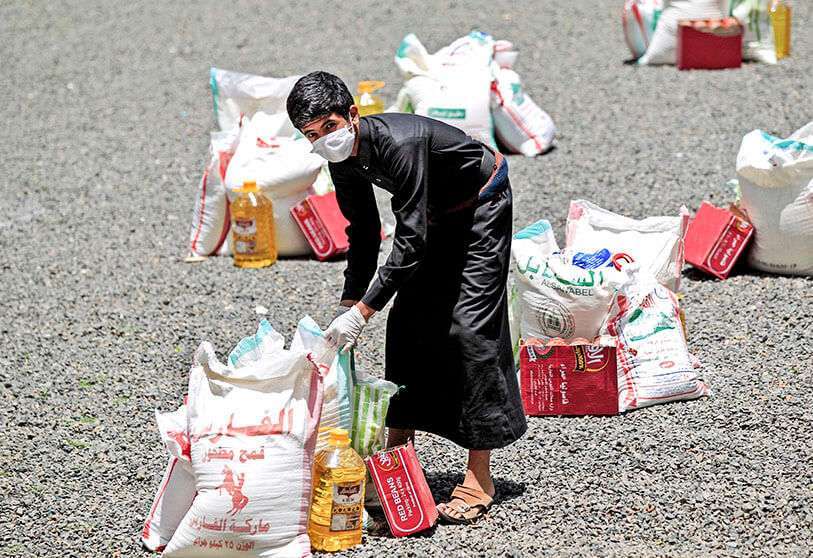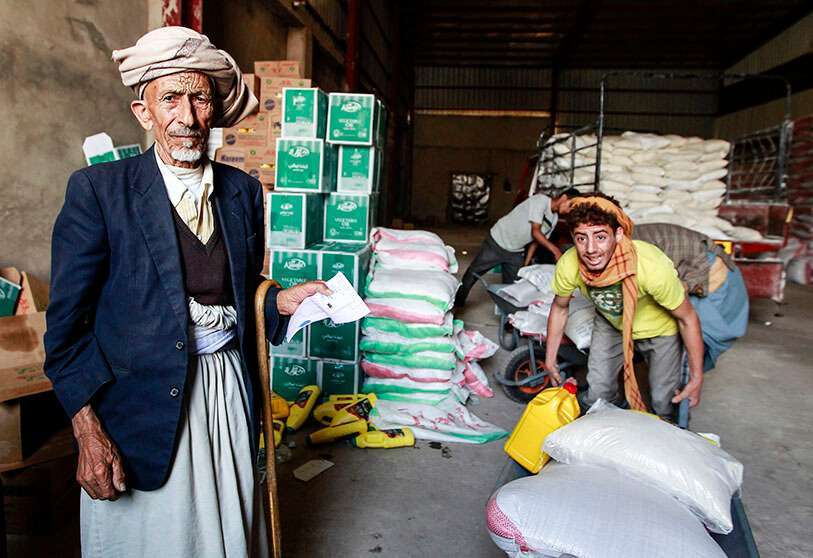Saudi Arabia and UAE lead aid donation to Yemen

The donors' conference for Yemen on Tuesday raised more than $1.3 billion, far short of the $2.4 billion the UN had hoped to raise to fund its humanitarian programmes in the war-torn country. In a virtual conference organized by Saudi Arabia in cooperation with the United Nations and attended by many countries with mid-level representatives, aid packages of hundreds of millions were announced on a path that is "not the end" according to the organizers. King Salman's charity supervisor, Abdullah al Rabeeah, said the positive response from donors "means that Yemen matters" to the international community.

Recalling a similar fundraiser a year ago in which $2.6 billion was pledged, only half of it paid out, U.N. humanitarian chief Mark Lowcock said "all those who have made pledges must pay directly, because pledges on their own achieve nothing," he said, noting that only $500 million has been received this year, so there is a large funding gap for all UN programmes.
UN Secretary General Antonio Guterres stressed that there had never been "so little money at this point in the year", when it is also necessary to strengthen the international response to the VIDEO 19. “Unless we secure significant funding, more than 30 out of 41 major United Nations programs in Yemen will close in the next few weeks,” he warned at the start of the conference. Both Saudi Arabia and the UN pledged to continue to seek funding for Yemen, while promoting a "political solution" to the conflict in the Arab country.

Saudi Arabia announced a donation of $500 million, $300 million of which will go to UN agencies and the other $200 million to the King Salman organization, linked to the authorities of the kingdom, which is also one of the parties in the conflict. Saudi Arabia's foreign minister, Faisal bin Farhan, recalled that Saudi Arabia has contributed 16 billion dollars since the beginning of the conflict in Yemen in 2014, when Hutu rebels occupied large areas of the country, including the capital, Sana'a. In March 2015, Saudi Arabia intervened in Yemen at the head of a military coalition to defend the internationally recognized government of President Abd Rabbuh Mansur al-Hadi, causing the conflict to escalate in the following years, resulting in the worst humanitarian crisis on the planet.
Apart from Saudi Arabia, the United Arab Emirates, through the Minister of State for International Cooperation, Reem Bint Ibrahim Al Hashemy, reported that his country has already disbursed more than $6 billion to support humanitarian initiatives in Yemen, both from the UN and through other entities.

The UK announced a £160 million (over $200 million) package to support humanitarian programmes, in particular the fight against the coronavirus, and Germany announced £125 million (about $140 million) in aid for the " biggest and most serious man-made humanitarian crisis", which could be further aggravated by the COVID-19. The United States did not announce any new donations at today's session, although Assistant Secretary for Near Eastern Affairs David Schenker said Washington, which supports the Saudis, will report new items "in the coming weeks" to address COVID-19 in Yemen.
Other European Union members, including Norway, with $175 million, and Sweden, also announced aid packages and called for a cease-fire in Yemen as a first step toward a negotiated solution to the conflict.
The call for a ceasefire was supported by several of the more than 60 countries that participated, including Russia, China and Canada, stressing the need to provide access to much-needed aid to the Yemenis.
The internationally recognised government's prime minister, Maeen Abdelmalik Saeed, called on donor countries to use aid "effectively to reduce suffering and improve the lives of Yemenis". He said the priority must be to pay the salaries of civil servants, some of whom are years behind, as well as to address the coronavirus, whose impact on Yemen can be devastating because of its fragile health system.









